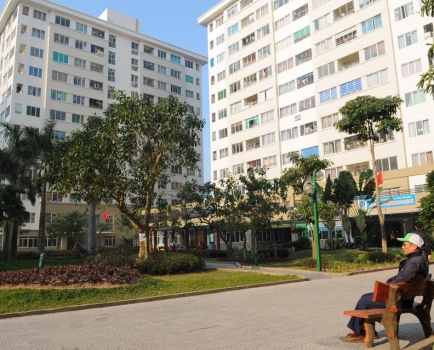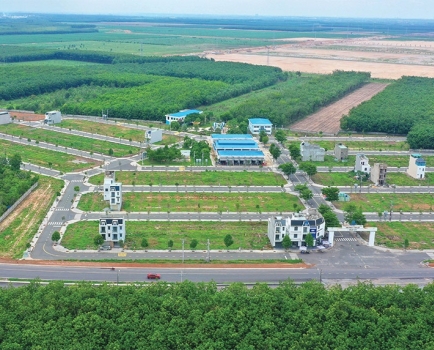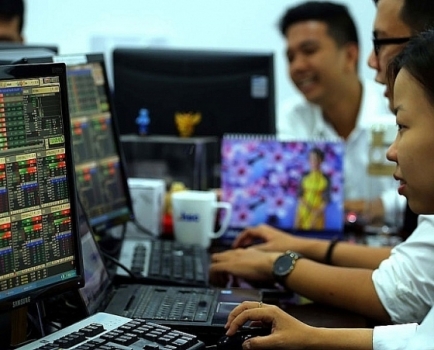Vietnam's economic recovery may slow in 2023
Wed, 02 Nov 2022 22:55:00 | Print | Email Share:
Vietnam's GDP growth would slow down in 2023 as global demand and re-opening spectrum fade, according to VNDirect.

Vietnam's GDP growth will slow down in the fourth quarter of this year
Global recession fears
We are concerned that high inflationary pressures, tighter global financial conditions, and supply chain disruptions could dampen growth prospects for the global economy.
The US GDP in 3Q increased at a 2.6% annualized pace for the period, against the Dow Jones estimate of 2.3% following consecutive negative quarters to start the year. However, the US economy still faces the risk of economic recession.
The housing market buckled under rising interest rates and high inflation, which took steam out of business and consumer spending. Therefore, the FED has lowered its forecast for US economic growth to 1.2% in 2023, from the previous forecast of 1.7%, and said that "the probability of a soft landing is increasingly difficult to achieve".
Vietnam's other major trading partners, such as Europe and China also face dismal economic growth forecasts in 2022-2023 period. The IMF warned in its latest report that the global economy could slow down in 2023 with countries making up about a third of the global economy poised to contract by 2022 or 2023. Accordingly, the IMF lowered the global GDP growth forecast in 2023 to 2.7% from the previous forecast of 3.2%, of which the GDP growth of the Eurozone in 2023 was reduced to 0.5 % from the previous 1.2%.
The IMF projected that the German and Italian economies could fall into recession in 2023 with GDP growth of -0.3% and -0.2% respectively. Meanwhile, the IMF downgraded its growth forecast for China’s economy in 2023 to 4.4% from the previous forecast of 4.6%.
A drop in GDP growth
Mr. Dinh Quang Hinh, Senior Analyst at VNDirect, said VNDirect maintains its view that Vietnam's GDP growth will slow down in the fourth quarter of this year as global demand and re-opening spectrum fade. Accordingly, it forecasted that Vietnam's GDP could grow by 5.6% (/-0.5 ppt) yoy in 4Q22F, bringing the entire-2022 growth to 7.9% yoy (/- 0.2 ppt).

"We maintain our forecast that Vietnam’s GDP growth could reach 6.9% yoy in 2023F. This lower growth outlook could be attributed to: (1) slowing economic growth of Vietnam's major trading partners such as the US and Europe could dampen export prospects; (2) higher inflation could hurt the recovery of domestic consumption; and (3) rising interest rates increase costs and affect business expansion plans. However, there are still supportive factors for Vietnam's growth in 2023, such as abundant disbursement of public investment and a strong recovery in foreign arrivals. Overall, Vietnam will still be one of the fastest growing countries in the Asia-Pacific region in 2022-2023 period", said Mr. Dinh Quang Hinh.
Risks to GDP growth
Mr. Dinh Quang Hinh sees a number of risks to Vietnam’s economy in the coming months, including:
First, the Fed and ECB will maintain tight monetary policy to control inflation. This will push interest rates higher in the future, thereby reducing consumer demand, tightening the job market, and slowing economic growth in the US and Europe. Lower demand in the US and Europe will have a negative impact on Vietnam's exports to these two markets (accounting for nearly half of Vietnam's total export value in 2021) in the coming quarters.
Second, record-high temperatures and a severe drought in southwestern China have crippled hydropower generation and prompted the shutdown of many factories there. It is the latest blow to the Chinese economy, which has sluggish consumer spending and a deeply troubled property market. China's economic slowdown will affect Vietnam's exports to this market.
Besides, the closure of factories in China due to the Zero-COVID policy or power cuts could negatively impact Vietnam's production because many Vietnamese manufacturing industries have a high proportion of input materials from China, such as textiles, metallurgy, chemicals, and electronics.
Third, a strong USD puts great pressure on Vietnam's exchange rate. In order to stabilize the exchange rate, the SBV had to intervene in the FX market recently and sold a large amount of foreign exchange reserves. However, if the USD continues to strengthen, the SBV will have fewer resources to deal with because foreign exchange reserves are thinner than before. The SBV may have to consider increasing policy interest rates, thereby increasing business costs and adversely affecting economic growth.
Fourth, inflationary risks remain as the protracted Russia-Ukraine conflict causes global supply chain disruptions. Higher-than-expected inflation might hinder economic growth and change the monetary policy to be more hawkish. The SBV has less room to maintain an accommodative monetary policy to support the economy.
By: Business Forum Magazine
Source: https://en.diendandoanhnghiep.vn/vietnam039-s-economic-recovery-may-slow-in-2023-n35650.html
---------------------------------------------
Same category News :













